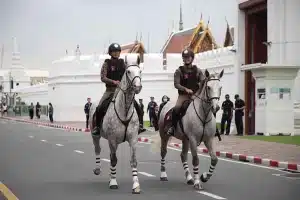Fishermen abuse and slavery cases solved “off-the-record”

Many cases of alleged abuse and slavery at sea are not being reported to the Thailand government. The Thomson Reuters Foundation did an analysis on the claims of slavery and abuse on Thai fishing boats and found that the majority of complaints are not documented with labour ministry officials who solve issues “off-the-record”.
Many fisherman agree to mediation because they don’t want to waste time if the case goes to court, Suwanee Dolah from Raks Thai Foundation, a non-profit focusing on a variety of humanitarian and supports fishermen, mostly from Cambodia and Myanmar. Employers would rather not have a large number of complaints, Dolah says. One labour ministry official explained to Reuters that they encourage the employer and employee to mediate before submitting a complaint, if the case is minor.
Reuters obtained labour abuse complaints from 289 fishing workers lodged between 2o15 and 2020. Nothing was documented on the outcomes. Some fishermen seek help from charities rather than the government. Since 2015, charities have been helping out around 1,600 fishermen solve problems with their employer involving payment and abuse, according to Reuters.
Although complaints are supposedly getting resolved, a lawyer specialising in human trafficking told Reuters that labour inspectors tend to support the employers rather than the workers. He added that many workers are afraid of taking legal action.
“If the cycle of violations kept in the dark and solved one-on-one goes on without punishment, some say the employers may keep abusing the employees…. it will cause a never-ending cycle of rights violations.”
SOURCE: Reuters
Latest Thailand News
Follow The Thaiger on Google News:


























